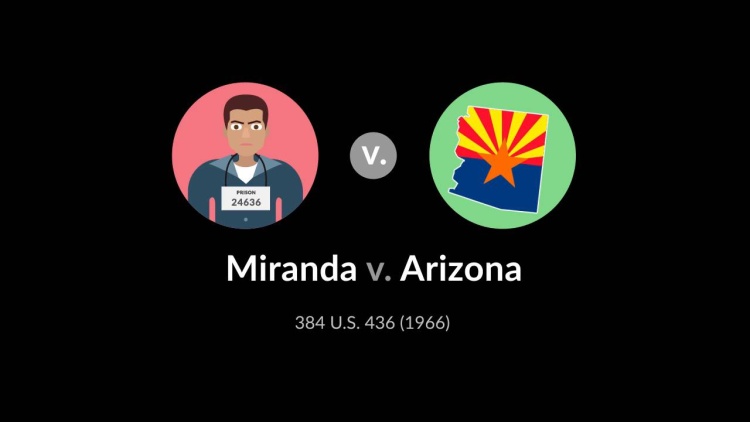Miranda v. Arizona
United States Supreme Court
384 U.S. 436, 86 S. Ct. 1602, 16 L. Ed. 2D 694 (1966)
- Written by Sarah Venti, JD
Facts
Ernesto Miranda (defendant) confessed after questioning by Arizona police while he was in custody at a police station. Before Miranda confessed, the police did not advise him of his right to counsel. Miranda suffered from a mental illness. The State of Arizona charged Miranda with kidnapping and rape. At trial, the court admitted his confession, and a jury convicted him. The Arizona Supreme Court affirmed Miranda’s conviction. Like Miranda, Michael Vignera and Carl Westover (defendants) confessed to crimes after extensive custodial interrogations without being notified of their rights. Their convictions were affirmed. However, the California Supreme Court reversed the conviction of Roy Allen Stewart (defendant) because the record was silent on whether he had been advised of his rights. Stewart had dropped out of school in the sixth grade. The United States Supreme Court accepted these four cases to determine what kinds of custodial-interrogation procedures were required to adequately safeguard the Fifth Amendment right against self-incrimination.
Rule of Law
Issue
Holding and Reasoning (Warren, C.J.)
Dissent (White, J.)
Dissent (Harlan, J.)
What to do next…
Here's why 910,000 law students have relied on our case briefs:
- Written by law professors and practitioners, not other law students. 47,100 briefs, keyed to 997 casebooks. Top-notch customer support.
- The right amount of information, includes the facts, issues, rule of law, holding and reasoning, and any concurrences and dissents.
- Access in your classes, works on your mobile and tablet. Massive library of related video lessons and high quality multiple-choice questions.
- Easy to use, uniform format for every case brief. Written in plain English, not in legalese. Our briefs summarize and simplify; they don’t just repeat the court’s language.





